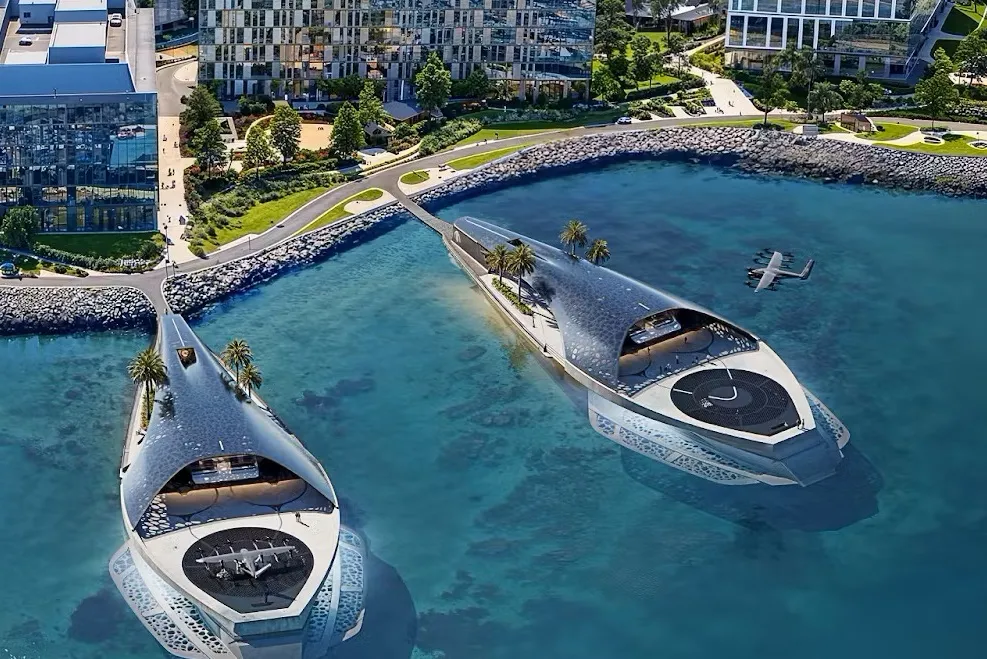
Aircraft manufacturer Archer says it hopes to connect the San Francisco region with electric vertical take-off and landing (eVTOL) aircraft – reducing a two-hour drive with a 20-minute flight.
Five areas - South San Francisco, Napa, San Jose, Oakland and Livermore - will have “unprecedented connectivity” to communities around the region, allowing people to replace one-to-two-hour drives to cities around the bay with flights that take around 10-20 minutes (see map below).
To anchor the network, Kilroy Realty, a landlord and developer, recently signed an agreement with Archer to make Kilroy’s Oyster Point – a 50-acre waterfront campus in South San Francisco – the hub of Archer’s planned San Francisco Bay Area network.
The companies will investigate the potential for a “vertiport” at the Kilroy Oyster Point development, a mixed-use campus in the heart of the Bay area’s biotech region. Archer would have access to a take-off and landing site for its aircraft to connect with planned Archer vertiport locations at Napa, San Jose, Oakland and Livermore, where Archer has relationships with other infrastructure and operations partners.
The agreement with Kilroy will help create the infrastructure to support Archer’s air mobility service and laying the foundation for a robust network of landing sites throughout the Bay area, said Bryan Bernhard, Archer’s chief infrastructure officer.
Kilroy would become the first developer in the US to bring eVTOL operations to its tenants and the employees. The agreement with Kilroy supports the development of an Archer “Sea Portal'' - a waterfront mobility hub providing electric ferry service and eVTOL operations for all companies at Kilroy Oyster Point.
The Sea Portal will also be powered by renewable energy, explained Angela Aman, Kilroy's chief executive officer: "We believe that this innovative and sustainable service has the potential to provide exceptional convenience and optionality to current and future tenants at the project, further differentiating Kilroy Oyster Point within the South San Francisco market."
An initial launch location at Kilroy Oyster Point could open as early as the end of 2025 and the two companies are exploring potential expansion into other locations within Kilroy’s portfolio.
Archer’s Midnight is a piloted, four-passenger aircraft designed to perform rapid back-to-back flights with minimal charge time between flights. Archer, based in Santa Clara, California, said its goal is to “unlock the skies” by transforming urban travel.
The strategy is to replace 60–90-minute commutes by car with estimated 10–20-minute electric air taxi flights that are safe, sustainable, low noise and cost-competitive with ground transportation.









